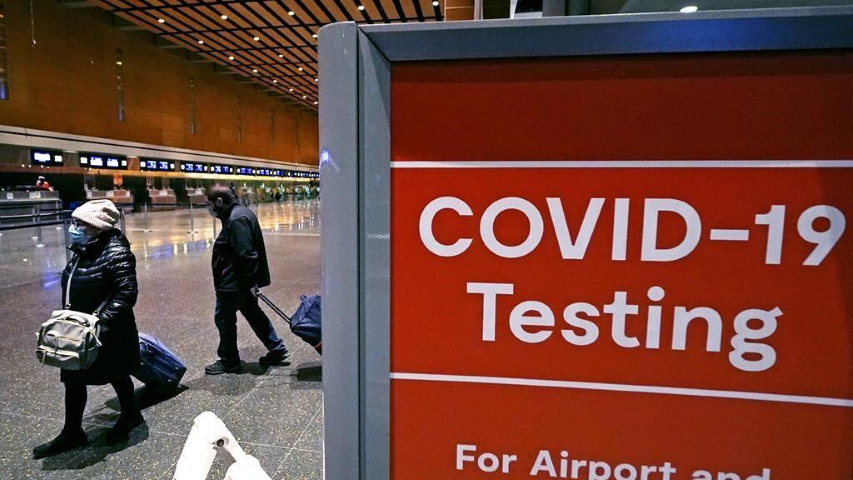
Travelers pass a sign near a COVID-19 testing site in Terminal E at Logan Airport, on Dec. 21, 2021, in Boston. (AP Photo/Charles Krupa, File)
The leading public health agency in the United States is extending a program aimed at screening international travelers for COVID-19 and other contagious illnesses.
Operated by the Centers for Disease Control and Prevention (CDC), the initiative invites incoming international passengers to volunteer for nasal swab tests and provide details about their travel history. Initially active in six airports, the program will now include two additional airports: Chicago’s O’Hare and Miami. CDC officials anticipate that these new locations will offer valuable insights into respiratory infections originating from South America, Africa, and Asia.
According to Allison Taylor Walker from the CDC, the expansion to Miami and Chicago will enhance the program's ability to gather samples from regions where global disease surveillance may be less comprehensive. Walker emphasized the importance of gaining a comprehensive understanding of global health trends to enhance preparedness for future health challenges.
Launched in 2021, the program has been effective in promptly identifying COVID-19 variants. While the primary focus has been on COVID-19 genomic testing, the initiative also screens for influenza and respiratory syncytial virus (RSV).
Participants in the program do not receive individual test results but are provided with a COVID-19 home test kit to take with them, according to CDC officials. To date, the program has collected samples from over 475,000 air travelers arriving from more than 135 countries.
In addition to passenger screening, health officials are also monitoring wastewater from international flights at select airports for traces of COVID-19. While the current focus is on COVID-19 detection, CDC officials are exploring the feasibility of expanding wastewater monitoring to include other pathogens.
The CDC program is currently funded with a budget of approximately $37 million. Sample collection and testing are outsourced to two companies, Ginkgo Bioworks and XWell, with plans to expand the program's scope to cover over 30 different disease-causing microorganisms.















